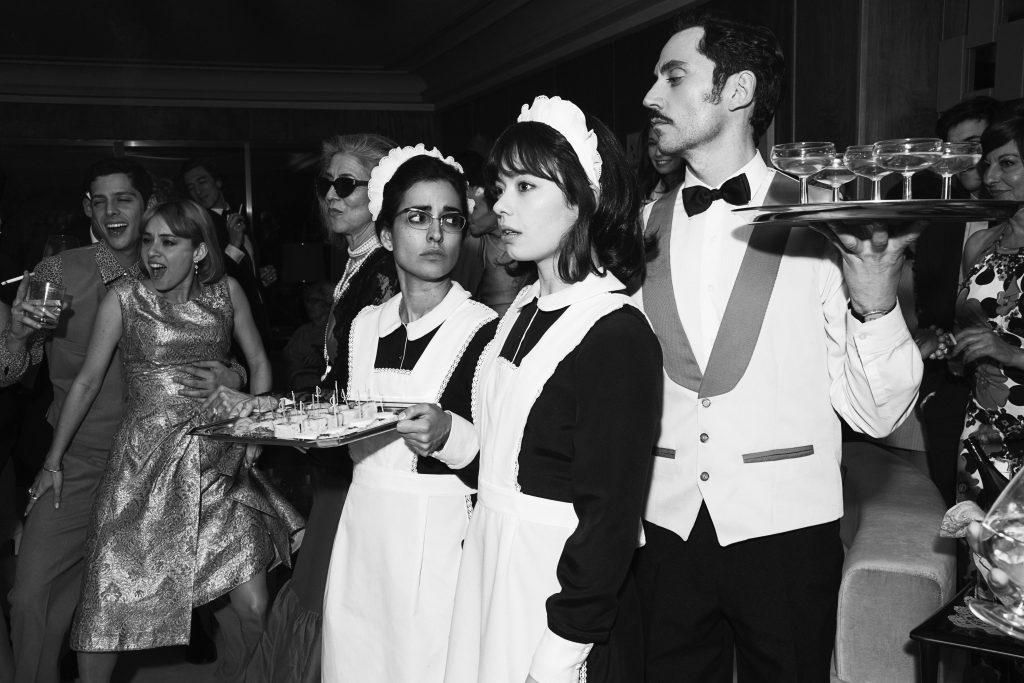Movistar Plus’ Drive Into Fiction Is Centered on Women
By Emiliano Granada
LOS ANGELES (Variety.com) – Cutting-edge international drama used to be deadly serious: Think Nordic Noir.
“Arde Madrid,” represents a departure.
An eight-part half-hour created by Paco Leon and Anna R. Costa, the comedy-thriller yokes Spain’s grand movie comic tradition of caustic neorealism — think Rafael Azcona and Luis Berlanga — with suspense and romance, B&W cinematography of, in set pieces, the highest order; and a period of 1961 Madrid’s little known Dolce Vita, energized with Romani clans, flamenco dives, whiskey and sex, and real-life figures, led by the extraordinary Ava Gardner.
But it is its thoroughly modern feminist filter that really gives “” its contempo edge and broader attraction while suggesting one way Movistar + is going as a company.
Gardner came to Madrid in 1957 to mourn her failed marriage to Frank Sinatra and find respect and freedom far away from the censorious eye of Hollywood, which deemed her white trash. Four years later, in “Arde Madrid’s” fiction, governess Ana Mari is instructing women at arcane dictator Francisco Franco’s Feminine Section.
“If your husband beats you,” she tells a packed hall. “It’s because you’re doing something wrong.” In episode 1, Ana Mari is dispatched to the Gardner household to ascertain if it’s a communist cell. The clash and gradual confluence of Gardner, Ana Mari and the other domestic staff — the cocky petty criminal chauffeur Manolo (played by Leon) and maid Pilar (Anna Castillo) — all from Spain’s working classes, allows “Arde Madrid” to describe the Spain of the time, Rodríguez said at a San Sebastian press conference.
So it’s in the intimate relationship between Ava Gardner (Demi Mazar), a woman maybe a century ahead of her time in her full-on sexuality, and Ana Mari, initially a Francoist sourpuss, that the heart of “Arde Madrid” lies.
Gardner “is a celebration of her happiness at living,” Leon said in San Sebastian. That “helps Ana Mari change from an emotional and sexual illiterate to a woman with a desire to discover everything.”
The feminist presence in “Arde Madrid” is a sign of the new TV fiction times and one strategic direction at the company.
When Rodríguez and León began to develop “Arde Madrid” six years ago, they already had the idea of priming its female characters, Rodríguez said at the Movistar + upfront. But that wasn’t in line with what was expected then of characters. With the new feminist boom, and Movistar + development team encouragement, Rodriguez said, she no longer feels “very alone” in developing “Arde Madrid’s” feminine gaze.
Women make up 36% of Movistar + series’ directors, screenwriters and producers, according to Corral. That figure will rise to 40% next year.
“Women form half of the world. If fiction influences the collective imagination, they should be half of that as well,” said actress-director Leticia Dolera at the Movistar + Upfront, where she presented her new series project “Déjate llevar,” the shingle’s first comedy of total female creation, a generation dramedy about three women in early ’30s crisis.
Most of Spain’s TV industry would now agree.
Jamie Lang contributed to this report.

